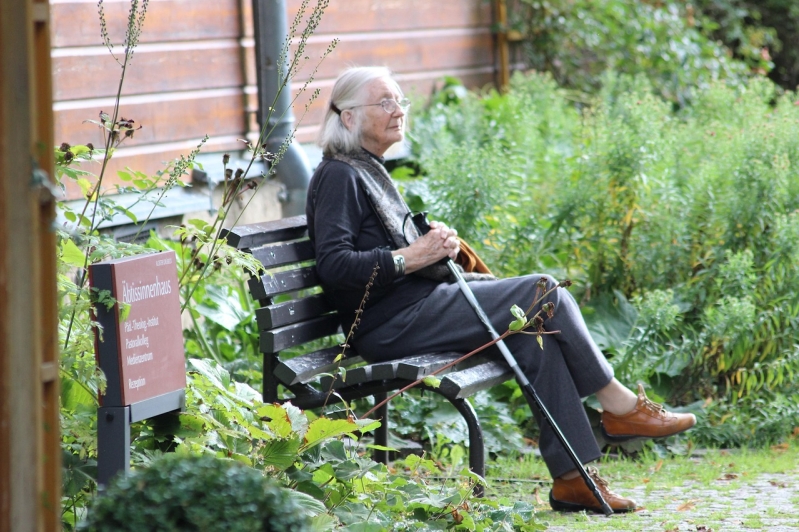
Belgian lawmakers are weighing a controversial amendment to the country’s 20-year-old euthanasia law that would allow patients diagnosed with dementia to be euthanized, provided they signed a “Declaration of Intent” while still mentally competent.
The proposed changes would mark a significant expansion of Belgium’s euthanasia legislation, originally passed on May 28, 2002, making it the second country in the world to legalize the practice. Since its introduction, 37,606 people have died through euthanasia in Belgium, 72.6% of them over age 70 and 43.2% aged 80 or older, according to official data through 2023.
Supporters of the amendment argue it would allow patients to exercise autonomy even if they lose the ability to communicate their wishes. The Institute for Medical Anthropology and Bioethics (IMABE), an Austrian think tank established by the Austrian Bishops’ Conference, reported on March 26 that the proposed law would extend euthanasia to those who are no longer capable of expressing consent.
The bill was introduced in Belgium’s Federal Parliament on Sept. 4, 2024. Two members of the Open Flemish Liberals and Democrats—Irina de Knop, mayor of Lennik, and Katja Gabriëls—have been leading voices in favor of the amendment.
On social media and in statements on her website, de Knop has defended the proposal and pushed back against criticism from religious institutions.
“It is the patient who determines what unbearable suffering means for him or her,” she wrote on Instagram. “There is no government, church or institution that should decide that in our place.”
In a Feb. 28 update on her website, de Knop described the current law as too restrictive for patients who have lost the ability to make decisions due to degenerative illnesses.
“Patients can only request euthanasia via a living will if they are in an irreversible coma,” she said. “This excludes many people who suffer from conditions in which they can no longer express their will, but who still experience unbearable suffering.”
She said this legal gap often pushes patients with early-stage dementia to request euthanasia prematurely, fearing the loss of capacity to consent.
“This law actually forces them to die prematurely. We need to change that,” de Knop said.
However, critics of the proposed amendment have raised ethical and medical concerns.
Belgian neurologist Eric Salmon of the University of Liège, quoted in the IMABE report, testified that dementia patients are still capable of “positive moments and [can] feel love,” suggesting their suffering is not always as severe as some assume.
IMABE also cited concerns from MP Frieda Gijbels, who suggested that fear of future suffering—rather than suffering itself—is driving euthanasia requests in such cases.
“What is particularly shocking for many is how people with dementia are degraded—as individuals who merely live in a ‘vegetative’ state,” said the IMABE report. “The bill reflects negative narratives: dementia thus becomes the bogeyman of a society that previously defined autonomy and cognitive performance as the essence of human existence.”
Proponents argue the law change would give people with progressive and irreversible conditions the ability to define their own limits of suffering in consultation with a doctor before losing capacity.
“This means that they can record in advance, in consultation with their doctor, what constitutes unbearable suffering for them and in what situation they want euthanasia,” de Knop said. “It is about respecting personal choices, even when someone can no longer express his or her wishes.”
She added that the declaration of intent could be updated or revoked as long as the patient remains competent. The amendment would also preserve the conscience clause for physicians, allowing them to opt out if the request conflicts with their beliefs.
However, the IMABE report noted a potential inconsistency: while the law recommends a medical consultation when drafting the declaration, it does not require it. According to the parliamentary record, the drafters “chose not to make these conditions mandatory, so as to leave everyone free to draw up a declaration, even without the help of a (general) physician.”
“The doctor who dates and signs an advance in matters of euthanasia merely confirms the applicant’s capacity,” the drafters noted.
Viennese bioethicist Susanne Kummer, director of IMABE, warned that Belgium’s normalization of euthanasia over the past two decades has affected societal attitudes toward aging and care.
“Depriving seniors of medically adequate care for cost reasons in order to save money, combined with the offer that they could still use active euthanasia, represents a dangerous mix for a society,” Kummer said. “The argument of self-determination thus quietly tips over into external determination.”
“As soon as euthanasia becomes a normal option, the pressure for a socially acceptable early death grows,” she added.
In the United Kingdom, where a bill on assisted dying is currently progressing through Parliament, similar concerns have been raised. The Christian Medical Fellowship (CMF) released a leaflet titled “Protecting Patients from Assisted Suicide,” warning that such measures could erode trust between patients and caregivers.
“Under the existing law, patients who are old, frail, impaired or otherwise highly vulnerable can feel completely confident that their doctors are only acting out of a desire to support and heal them,” the CMF stated.
“In those times when they are feeling low and suggest they do not want to carry on—common but normally passing in those who are seriously ill—patients know that medical staff will support them through that difficult time rather than validating their despair,” the group continued.
“The fact that a doctor or nurse could initiate a conversation, or even instigate a hastened death—when a patient is ill, at their most vulnerable and seeking care—will fundamentally undermine that trust. Doctors must not be agents of a national suicide service.”






